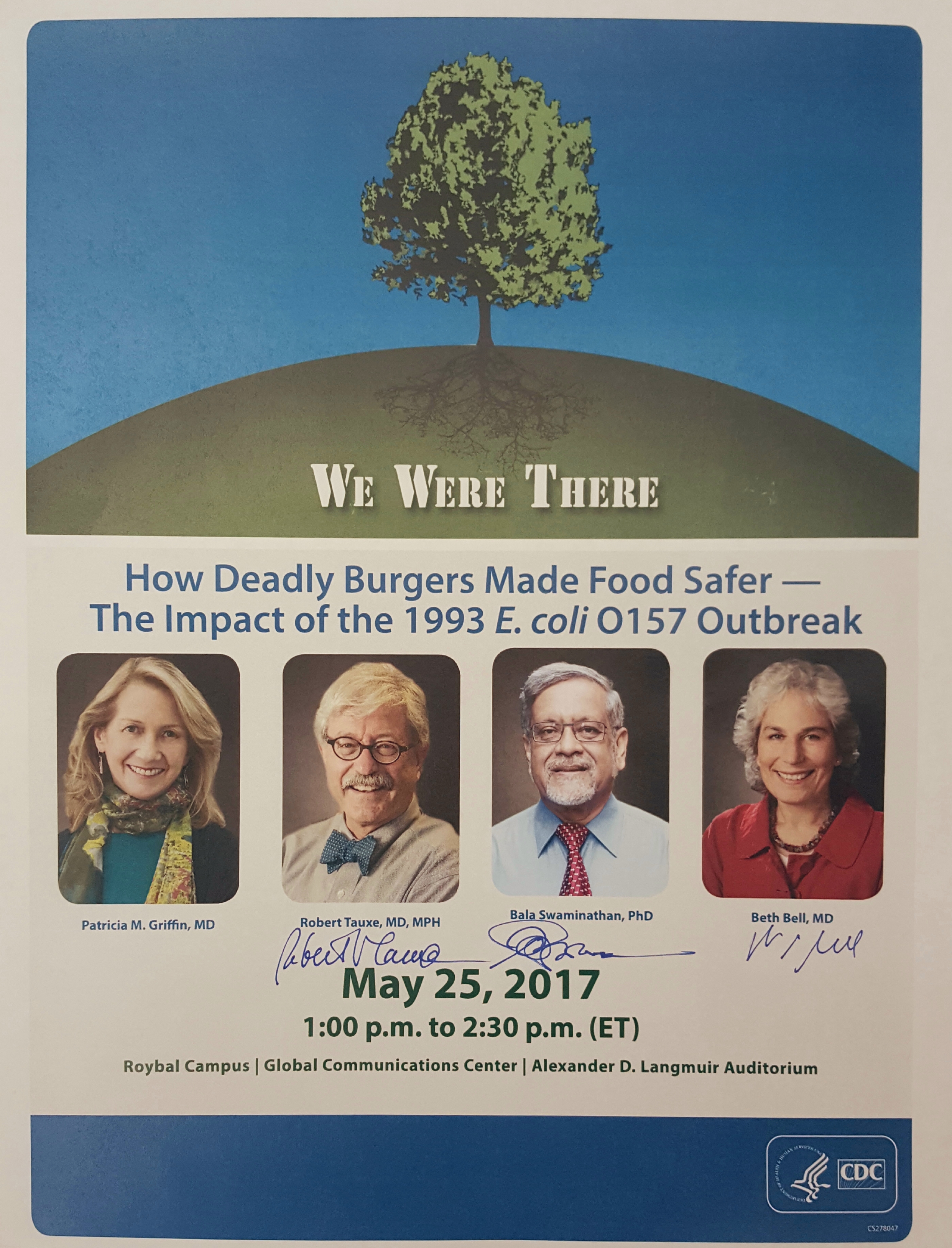How deadly burgers made food safer – the impact of the 1993 E.coli O157 outbreak
Supporting Files
Public Domain
-
June 15, 2017
-
-
Series: We Were There
File Language:
English

Details
-
Personal Author:
-
Corporate Authors:
-
Description:In 1993, four children died and more than 700 people in four states were sickened with severe and often bloody diarrhea. Public health investigators quickly linked the disease outbreaks to Escherichia coli 0157:H7 (E. coli O157), spread through hamburgers served at fast-food restaurants. Most of the cases occurred in Washington state.
Diligent disease detective work ultimately linked the outbreak to four states: Washington, California, Nevada, and Idaho. Further disease detective work by CDC traced the likely source of the E. coli to multiple slaughterhouses that supplied the ground beef to the restaurants.
The 1993 outbreak was not the first E-coli outbreak caused by undercooked ground beef, but it wasn’t until two outbreaks in 1982 that CDC scientists linked E. coli O157 and human disease. The public outcry over the 1993 disaster was swift and fierce and led to important changes in food safety practices, such as increasing the recommended internal temperature in cooked hamburgers. In 1995, E. coli O157 became a nationally notifiable disease.
In this presentation, Patricia M. Griffin, MD; Robert Tauxe, MD, MPH; Bala Swaminathan, PhD; and Beth Bell, MD, discussed the 1993 E. coli O157 outbreak and the subsequent changes in food safety regulation. The speakers then took part in a question-and-answer session.
-
Subjects:
-
Series:
-
Document Type:
-
Name as Subject:
-
Genre:
-
Place as Subject:
-
Issue:5
-
Collection(s):
-
Main Document Checksum:urn:sha-512:69416438a053fe038e3141d2772806ad9fbf9466d9a945051fb3c2c201951766f36698fa84b6e75639f9748fb322fde48d83790e57af5f2d98869e6a87543dc0
-
Download URL:
-
File Type:
Supporting Files

File Language:
English
ON THIS PAGE
CDC STACKS serves as an archival repository of CDC-published products including
scientific findings,
journal articles, guidelines, recommendations, or other public health information authored or
co-authored by CDC or funded partners.
As a repository, CDC STACKS retains documents in their original published format to ensure public access to scientific information.
As a repository, CDC STACKS retains documents in their original published format to ensure public access to scientific information.
You May Also Like
COLLECTION
Stephen B. Thacker CDC Library


